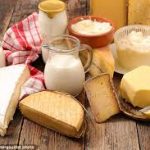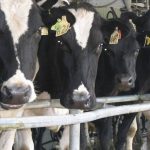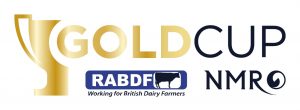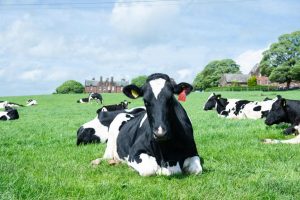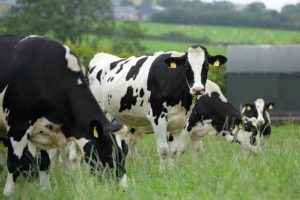
Based in southwest Scotland, The Ethical Dairy is not your typical organic farm. Farmers David and Wilma Finlay are pioneering a new system of dairy farming – one that keeps the cows and their calves together for five months before weaning them, rather than separating them at just days old.
This goes against conventional wisdom as well as conventional farming as it means each calf is drinking a third of the milk its mum produces, which has a significant wholesale value of around £700.
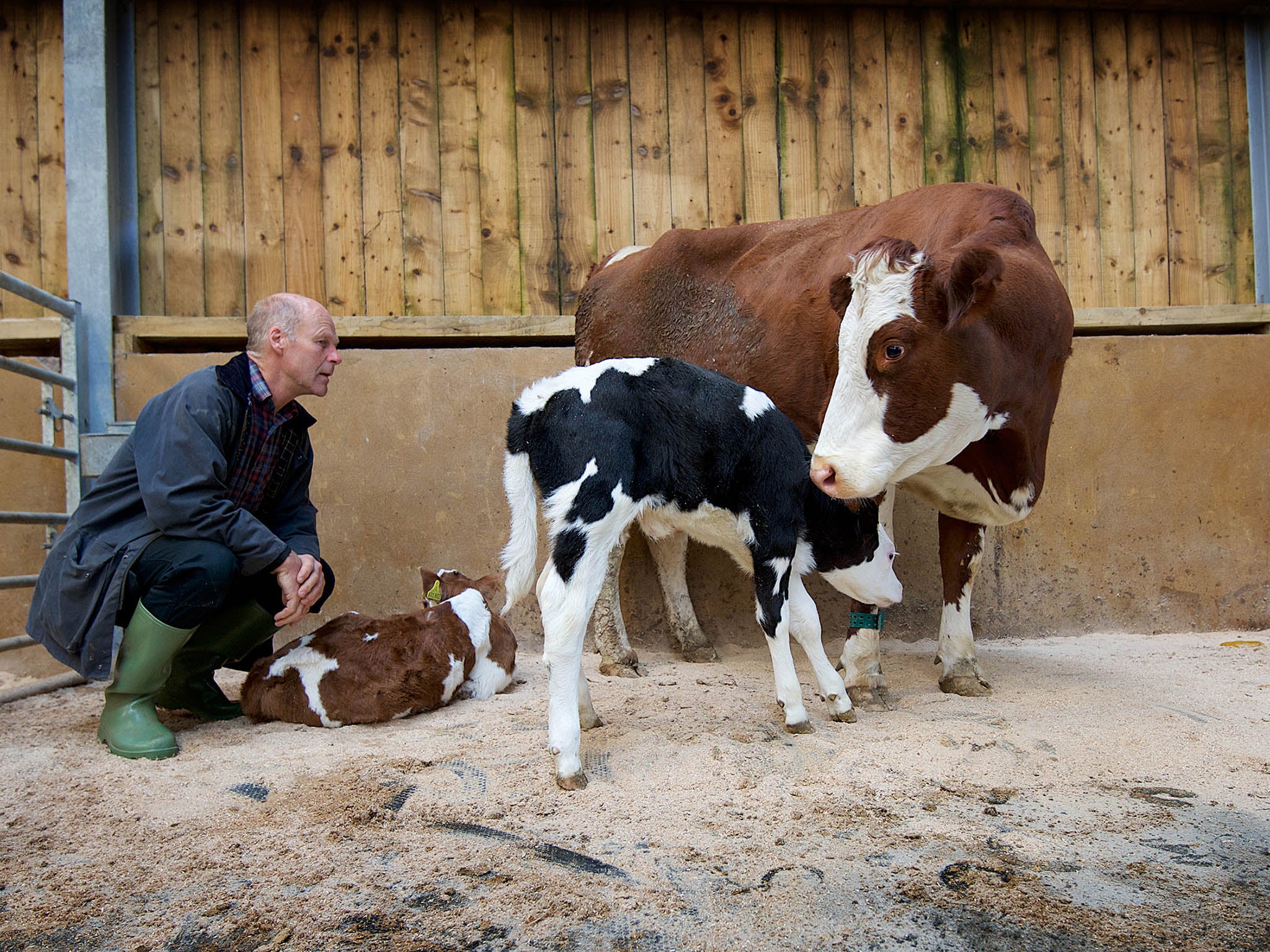
It’s a farming system built around animal welfare and one that is tapping into consumer demand – a consumer who never quite realised that calves have to be taken away from cows so we can drink the milk intended for them, and for whom this realisation doesn’t sit quite comfortably.
“It’s almost always mums with young children who ask ‘why do you separate the calves from their mothers?’” says Wilma, who gives summer tours of the 850 acre farm they rent.
Bad guy gone good
David’s story could be turned into a villain-turned-hero true-life film adaptation with so many highs and lows it couldn’t fail to tug at the heartstrings. His is the tale of an agro-chemical consultant who spent 10 years encouraging farms to intensify before inheriting his father’s tenancy and seeing the light – cue: city girl turned farmer’s wife Wilma’s influence. David gradually turns into an organic farmer who gets choked up when talking about the distress it causes cows to separate them from their newborn calves.
For Wilma, the answer was absolutely clear – they needed to find a way to keep the cow and calves together and eventually David was persuaded.
They are now exactly two years into their second attempt to do just this. Their first, according to Wilma, was “an emotional and financial car crash” in 2012.
The calves drank all the milk and they received penalties for not providing enough milk to their buyer. After six months they had to stop and began the slow separation process to minimise trauma.
They started by separating the cows and calves overnight. They kept them in the same shed so they could rub noses but the calves couldn’t access their mother’s teats.
There were no signs of stress and miraculously, the calves started taking hay and water, which meant the Finlays started to get milk.
“I went from advocating a cocktail of chemicals to absolutely believing it was the wrong thing to do,” says David.
“Once nature was given a chance, everything seemed to respond well – it became a question of what else can we do?”
It was a clear sign the system could work. But first they needed to recover financially; to date the dairy system has involved an investment of more than £1m.
In October 2016 they decided to try again. It was far from easy and resulted in their herdsman leaving at the end of the first year but the rest of the team of three – tasked with managing the herd and maintaining the buildings – persuaded David to continue for another year.
It transpired the cows were also on a learning curve. Now onto their second calves, they have learnt to trust that when they are taken away for milking they will be reunited with their calves.
Up to five months they are gradually separated for longer periods of time in different fields – but always in view of each other and able to touch noses – until one day the gate isn’t opened to allow them to reunite.
“The cows definitely vocalise their objection, but it’s completely different to when you separate them when the calves are just days old. Then it’s a very clear emotional stress. This way it feels more like they’re just letting you know they’re not happy about the situation but within 48 hours it all settles down,” says David.
“What strikes me the most is how the attitudes of the cows change under this system. That was one of the main drivers for us trying again. They seem so much more calm. That’s the best way I can describe it – calm.”
Incredibly, they have already hit their year three goal for milk production.
The deal with veal
So far, the story has made it as far as the BBC’s Disclosure: The Dark Side of Dairy, a documentary still available on iPlayer that highlights a largely unspoken issue in dairy – the fact that dairy bull calves can’t be milked and, because they have been borne to cows bred to produce large quantities of milk they do not put on enough weight quick enough to be of value to a farmer trying to rear them for meat.
As we don’t really eat veal in this country – in no small part due to the legacy of veal crates made illegal in Britain in 1990 – this means there are only two options for intensive dairy farmers who don’t have enough land to raise their calves: shoot the bulls at birth or sell them at auction to be taken as far as North Africa.
The journey is long and arduous for the calves, and their welfare is hugely compromised, so the solution is far from ideal.
“What everyone agrees on is we have to develop a market for veal. If you’re going to get upset about the calves travelling long distances you have to join the dots – part of the dairy industry is veal,” says Wilma.
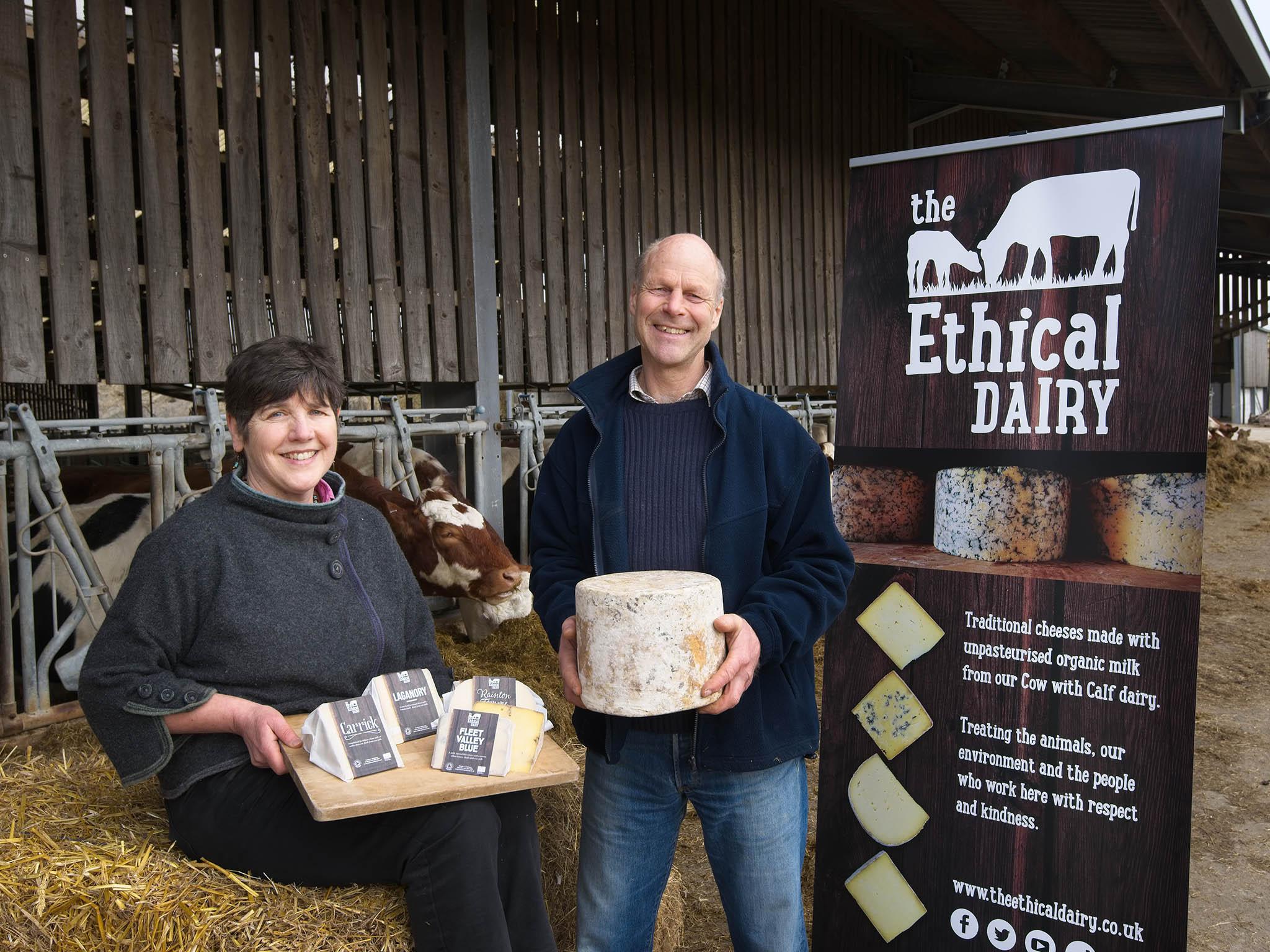
Beef production is an important component of The Ethical Dairy’s success.
Their herd is a hybrid of three breeds – Swedish Red for resilience, Montbeliard for beef, and Holstein for milk.
Suckling calves generally grow more quickly and they are sold to Peelham Farm in southeast Scotland for beef much earlier than in a conventional system.
David explains: “We are trying to keep the whole process as ethical as possible. Peelham Farm is also organic and have empathy with the animals, which is important to us.”
Together they are trying to build the market for ruby veal – calves that have suckled on their mothers – that can be sold at 10 months old, which helps with cash flow.
The rest of the bulls are reaching a beef finishing weight at 16 months old rather than the typical 26 months.
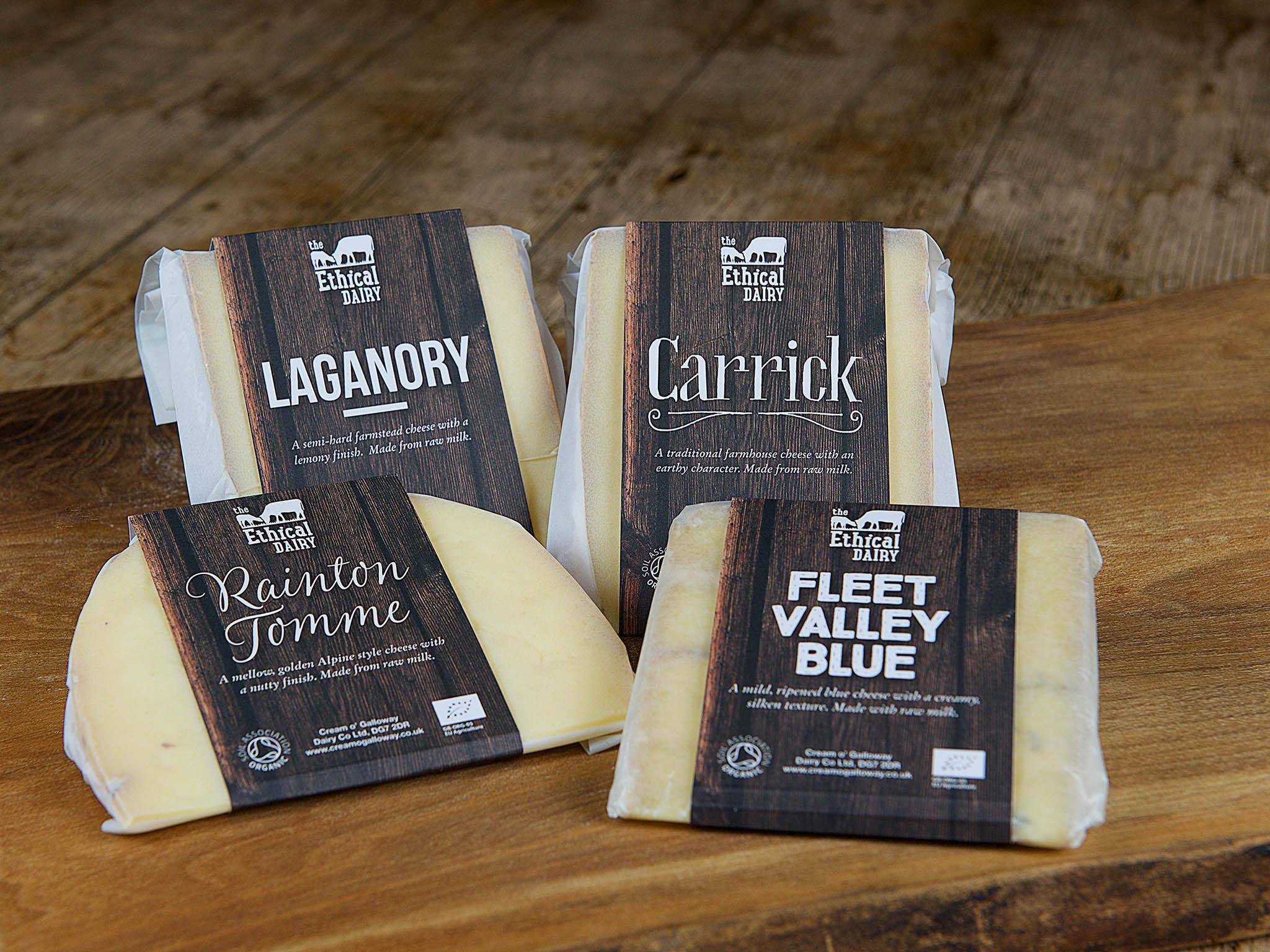
Selling the cows for meat earlier creates more space on the farm to grow the dairy herd. As such, the Finlays are aiming to increase the number of cows from 110 to 130.
The cows are also coming to maturity at 24 months rather than 34 months and so can be introduced into the dairy system sooner, creating a more efficient system.
Big cheese
Another key reason for their success is their diversification into artisanal products, first Cream of Galloways ice cream and now increasingly popular cheese, which command a higher premium than simply selling to an organic milk pool.
The Finlays currently produce three tons of cheese but are aiming to produce 10 times more than this. Although they have received some funding, conventional finance options aren’t easily available because it’s such unchartered territory, so last month they launched a crowdfunding campaign.
Now halfway through they have already reached 64 per cent of their £50,000 target. No mean feat considering you have to donate £65 to be rewarded with some of the cheese they produce – smaller donations are rewarded with good karma and a heartfelt “thank you”.
The Finlays have clearly tapped into a consumer demand for more ethically made products.
Although their campaign has received a backlash from some vegans, they’ve also had support from others who have even bought cheese for family and friends.
“It does sit better with all us farmers. We’ve been really lucky with our team – they get up in the morning so they can be part of something different,” says Wilma.
So, can dairy ever really be ethical? The Ethical Dairy is an artificial food system that is as closely aligned with what nature intended as we currently get.
It’s a food system where everyone wins – the farmers, the cows, and the conscious consumer.
That’s without even going into the environmental benefits associated with rearing cows for a combination of beef and dairy, rather than one or the other.
If you’re going to consume dairy or meat, it’s pretty much as ethical as it gets.
For more information, go to theethicaldairy.co.uk; Lizzie Rivera is the founder of ethical lifestyle website BICBIM (bicbim.co.uk)
